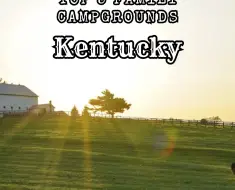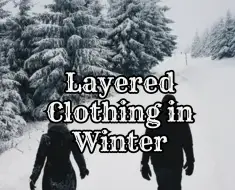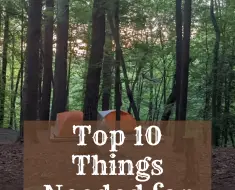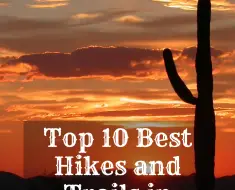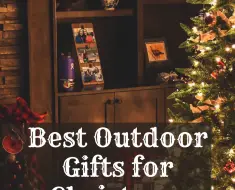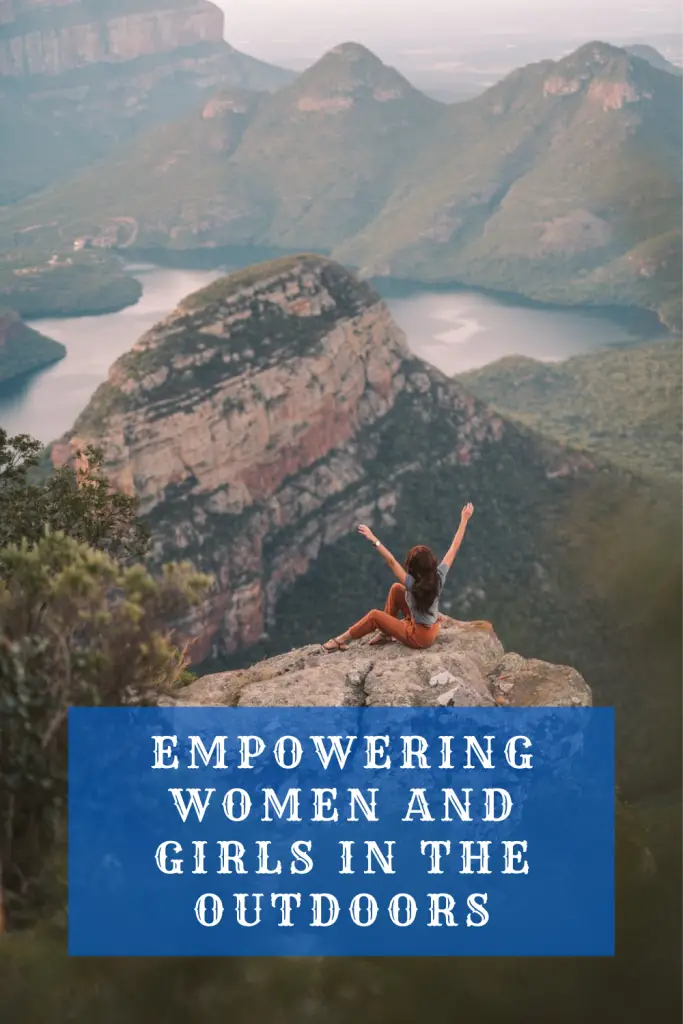
With many of the outdoor retail companies placing a marketing emphasis on empowering women and girls in the outdoors, I was initially humored by this concept. I chalked it up to a marketing ploy. They were targeting a demographic willing to spend money to feel empowered and fulfilled. I don’t need a company to launch a marketing campaign to make me feel like I can reach a summit. Let alone do something insanely adventurous while purchasing their gear. After all, I was shopping for climbing gear long before they were telling me “I am a woman, a force of nature, and I can summit Mt. Rainier if I believe in myself and buy some gear.”
Regardless of how I evaluate myself, if this campaign is encouraging women to push their boundaries and feel more empowered, then I am equally as stoked in the end. But why was this even a campaign and how did it gain momentum and the support of famous, well-respected athletes?
Get the women in your life outdoors at these Arkansas Family Campgrounds
Why a Lack of Empowerment
Throughout the year, I teach classes to all ages and genders on topics such as rock climbing, backpacking, crevasse rescue, team rescue, backcountry navigation, and wilderness first aid. With the onset of this retail marketing campaign, I began to notice many women and girls own certain thoughts. For instance, they can’t climb it, can’t hike it, are too scared to do it, are not strong enough, and/or don’t want to fail. Where do these thoughts come from and how do we begin to change this type of thinking?
I am Guilty of Seeding These Thoughts
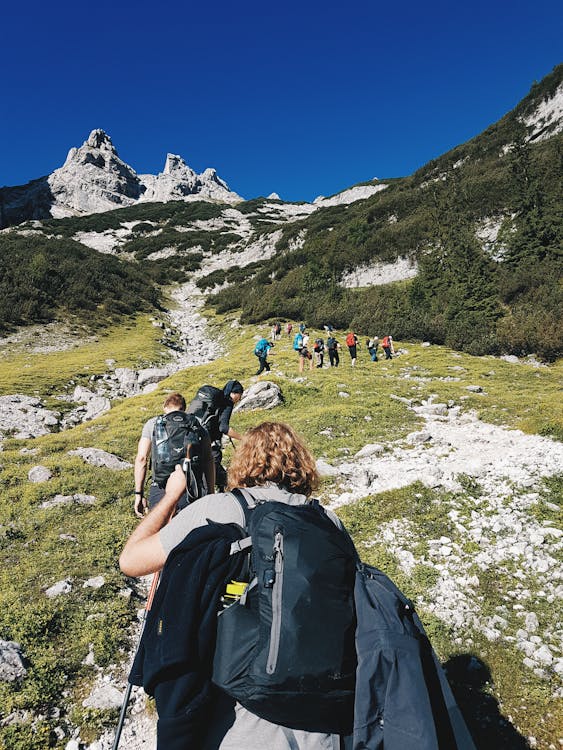
When I started climbing peaks with my son, and I’m talking rope, harness, ice axe type climbing, I noticed a difference between him and his sister who is two years younger. He was/is an incredibly strong hiker, has no fear of heights, and is driven to conquer. He also enjoys the solitude and rugged exploration found in the backcountry. This made him a great junior climbing partner. My daughter is not physically built the same. She does not enjoy backcountry solitude. Her eyes just don’t light up the same at the chance to conquer a route of the next degree of difficulty.
When they were 8 and 10, I asked if they would like to join me in completing the Wonderland Trail. This is a 93-mile trail that circumnavigates Mt. Rainier and takes an average of 8 days to complete. My son immediately said he was in. My daughter, as expected, declined the offer. She wondered why anyone would ever want to take on such a lonely, exhausting endeavor.
A moment of realization
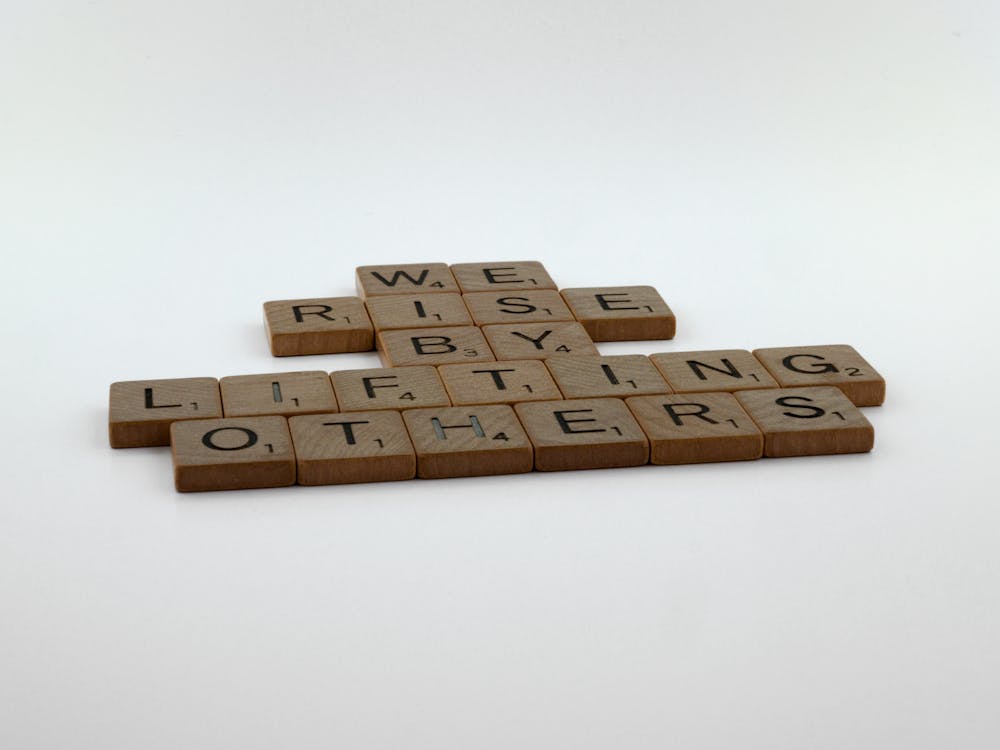
I now realize, this was the moment, I began to box her into a particular mold. I explained to people that I had one kid, similar to me (big goals, love of outdoors, no crowds). The other one preferred not to hike or be in the outdoors but instead stay home indulging in social, indoor hobbies. Despite her reluctance, I continued to bring her along on as many outings as she would agree to. However, we avoided big climbs and push-your-limit routes. When the opportunity arose, I would leave her home. My son and I would take off for a couple of days, climbing summits and taking pictures to show off on our return. Sadly, I was ok leaving my daughter behind. I simply thought bonding with my son while my daughter had the freedom to be herself was a reasonable compromise. However, I was really missing the point.
I was wrong. I mean, textbook bad parent wrong. Bad daughter raising wrong. And just plain bad leader wrong. Incomplete sentences in a blog post wrong!
The Empowerment Epiphany
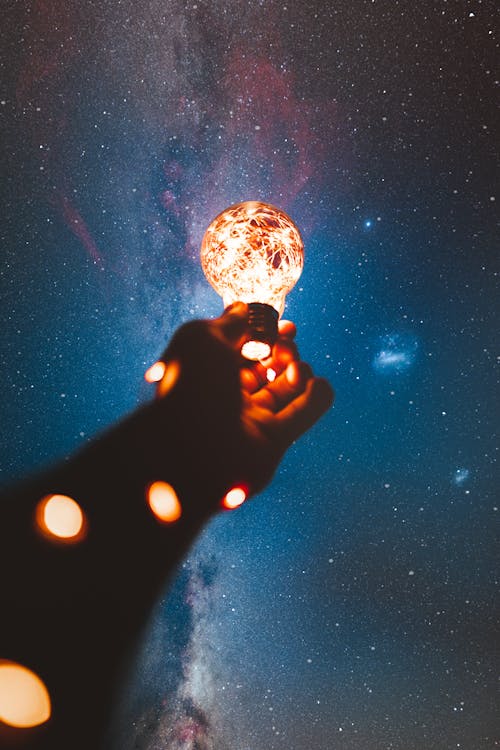
I had become too black and white about my kids’ outdoor experiences. It was as if I was telling my daughter, “You can climb Everest with me, or go shopping with your friends, but there are only two choices.”
My daughter started seeing herself as different from me. She sees her mom climbing big peaks, volunteering with mountain rescue, and teaching climbing classes. That led to her thinking she just doesn’t fit that mold. I was assuming because she didn’t find the same type of joy in outdoor experiences that I did, she just wasn’t suited for it. Yet, it enrages me when I hear a mother tell her daughter, “I don’t think you should climb that mountain, it’s dangerous and it’s just not what girls do.” I was on the other extreme.
This epiphany did not hit me while teaching a class, or through reading one of my countless, educational outdoor books. No, my enlightenment came through a series of events. Each one dragged me another notch further from the coveted parent of the year award.
Events of Empowering Women and Girls in the Outdoors
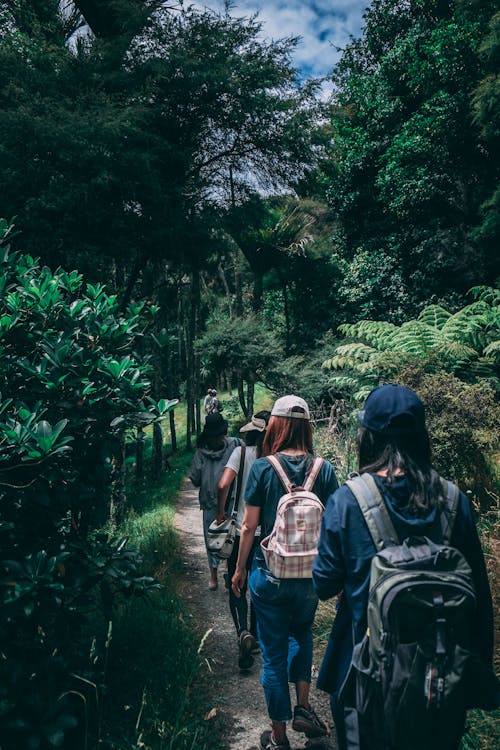
The first event
Last summer during a traumatic backcountry incident, my daughter, the youngest of the group, witnessed a near-tragic accident. Forcing her to instantly cope with an array of possible outcomes (death, serious injury, or someone else getting hurt too). She was confused and scared. Over a 24 hour period, her world was spinning out of control. Once things settled down, and we were safe at home, she was left was traumatized and broken. She spent the rest of the summer living in fear of the next tragic event. I became very sensitive to her outlook, approach, and overall emotional management.
Being safe in the outdoors is imperative. Learn how to stay safe with children while camping now!
The second event
I took her and some friends snow camping in February, six months after the accident. We camped just a half-mile from the trailhead, just to experience hiking and camping in the snow together. Sometime close to midnight, I became very sick in my tent. I only had enough time to sit up before I was throwing up all over my sleeping bag. My daughter woke up to me getting sick. I made the quick choice to pack up our sleeping bags, a few additional items and hike back to the car. She quickly threw on her coat, snow pants, and frozen boots.
As I unzipped the tent and noticed the fresh new foot of snow and single-digit temperatures. I turned to her and said “As we leave this tent, you stay in arm’s reach of me and don’t stop walking in this snowstorm. I don’t want to lose you in the dark.” She said nothing and quietly followed me. She shelved all of her discomforts and focused on following me. In her heart, she wanted to get back to the car so that I could start feeling better. She was a selfless leader at that moment.
The third event
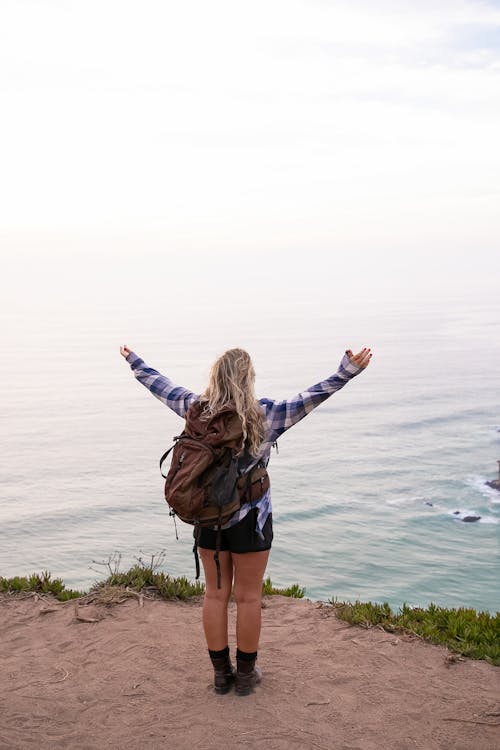
Two months later, we were out in Oregon backpacking the Oregon Coast Trail. It was her goal to backpack the Oregon coast from north to south. It rained on us 3 of the 4 days. While many people would be miserable with these conditions, she was not even phased. Instead, she focused on the wide beach having
no defined trail. She was free to create her own journey, write in the sand, chase the waves and find seashells along the way. As the rain would increase in volume, she would dance more along the trail, enjoying the feeling of crazy weather with no boundaries. She was completely in the moment and on her own journey of happiness.
Where Did We go from There?
More recently, I invited her to join a backpacking trip I was leading for a new class I was teaching. The course was introducing families to backpacking. This trip was their final “field trip” to complete the course, a 2-mile hike to a lake where they would set up camp for the night. With her outgoing personality and ability to make sure everyone felt included and welcome, I knew she would be the perfect addition to our group.
She spent the entire two miles of trail encouraging the little ones to keep going even when they were tired. Her outgoing personality allowed her to chat one on one with each of the kids about anything and everything. As the trail grew steeper, the kids didn’t seem to notice the extra effort and just kept the conversation going with her.
When we arrived at camp, she gathered all the younger kids and led them to a nearby creek. Then she proceeded to teach them all how to catch minnows and tadpoles. I thought to myself, “Really???? I didn’t even know these things were in the creek.” I never sit still long enough or take the time to notice such detailed little things. I’m more likely to leap over the creek focused on my destination or the next trail marker.
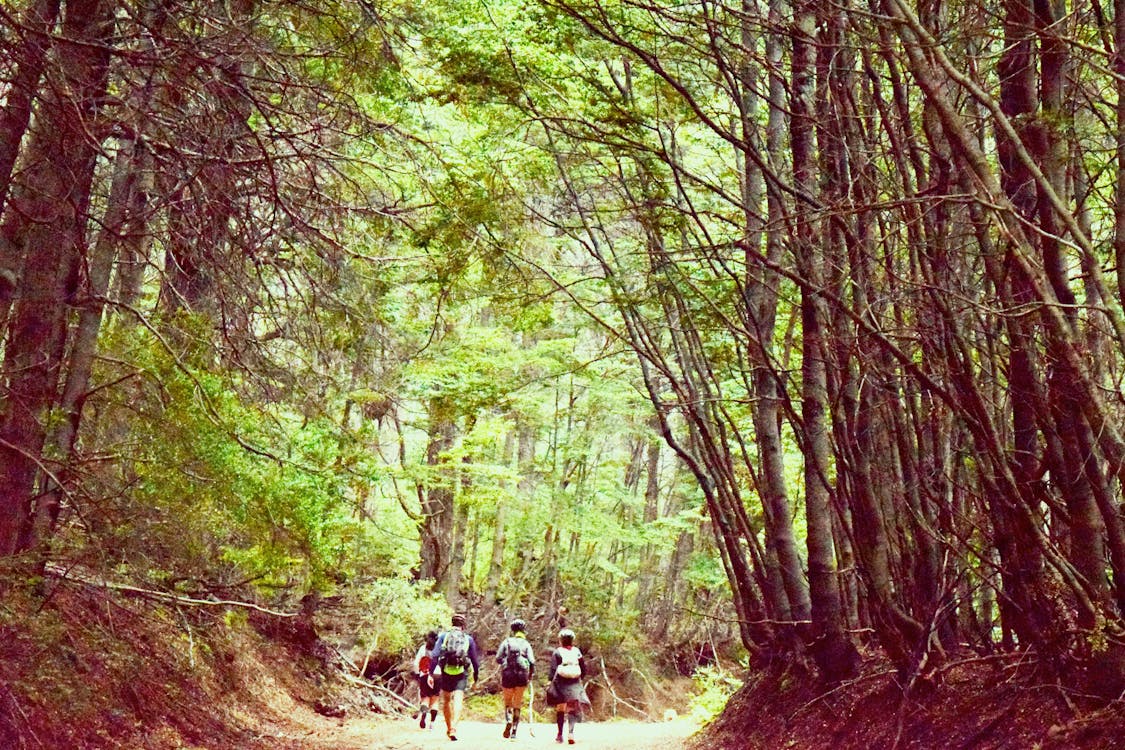
The following day, I found her and a new friend walking over to a 200-foot tall boulder-filled slope 200 feet west of our campsite. They decided to play tag among the boulders, some as large as my car. The group climbed up and down each rock, lunging and balancing from rock to rock in an attempt to catch each other. They continued this game for at least an hour. In the end, knees were scraped and shins were bruised but high jumps were landed. They laughed and chased as long as they could before we had to pack up and leave for the weekend.
Resource for Empowering Women and Girls in the Outdoors
There are others out there looking to get women into the wilderness as well. Their direct intent is to bolster confidence and grow skills. No longer does the outdoors have to feel foreign. These resources provide safe and empowering environments where women can learn to love the outdoors. Most are low pressure and are about exploring and finding a love of nature and yourself.

Hike Like a Woman – Helps women learn how to hike with confidence so they can go on epic outdoor adventures.
Girl Scouts of America – Everything Girl Scouts do builds their curiosity, kindness, and can-do spirit.
Adventures in Good Company – A community of women with adventurous spirits who support each other and relish time together in the outdoors.
Outdoor Women’s Alliance – Inspires confidence and leadership in women of all ages, believing that strong women have the power to build healthy communities and — quite literally — change the world.
Empowering Women and Girls in the Outdoors
So why is there a marketing campaign, and why is it necessary? Well, I realized through each of these trips that we all experience the outdoors in a different way. We all need to feel and see nature through our own lens and not someone else’s. We often hear women and girls say that they cannot achieve things in the outdoors because it has been exclusively marketed to burly men in the past. Empowering women and girls in the outdoors isn’t about fitting them into this same mold. Instead, the campaigns are about finding what each person loves about the outdoors. Then putting them into the right frame of mind to enjoy it.
So my child that doesn’t want to climb a big mountain or hike the Wonderland Trail, finds value in ensuring everyone is having the “best day ever”, finding immense join in the small things, dancing in the rain, and blazing her own path to a destination. I had missed the point all along in outdoor adventures and boxed her in a mold she didn’t belong in. Once I came to this realization, I knew that we were much more alike than I had previously given us credit for. She did love the outdoors. She just wanted to express it through her lens. Without the marketing campaigns of empowering women and girls in the outdoors, I likely wouldn’t have come to this realization.
We want to hear your empowerment story! Tell us in the comments below, on our Facebook, or on Reddit!

